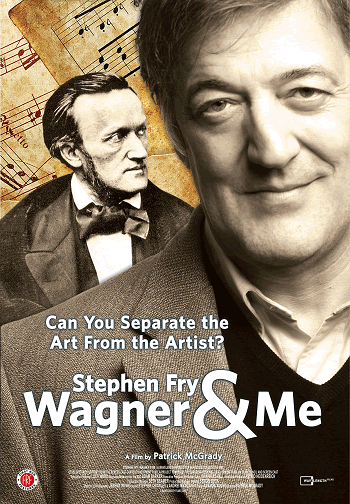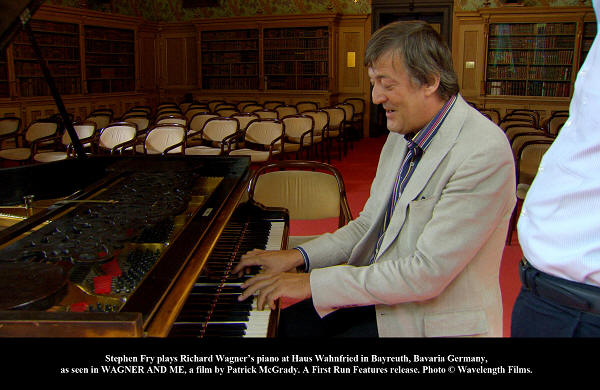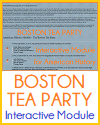| Wagner and Me (2010) Educator Guide |
|---|
| www.studenthandouts.com ↣ Film Guides ↣ Documentary Guides |
 Length: 89 minutes (1 hour, 29 minutes)
Length: 89 minutes (1 hour, 29 minutes)Age appropriateness: Wagner and Me is not yet officially rated in the United States, but is safe viewing for all. The content of the film, which includes information on Germany in the 1800s as well as under Adolf Hitler, is best suited for those as young as junior or senior high school students who are learning about either of these historical periods, or who are studying the development of classical music. Creators and stars: Andrei Nikolayev, Astrid Heidenreich, Beth Beamer, Jeremy Irving, Patrick McGrady, Sergei Beck, Sergei Dubrovsky, Stephen Crawley, Stephen Fry, Wavelength Films, First Run Features Accuracy: Wagner and Me, is well researched, providing accurate information on the life of Richard Wagner as well as on the use of Wagner's music and themes in the promotion of the Nazi agenda under Adolf Hitler. Review: Wagner and Me looks at how a thoughtful, modern person--in this case, Stephen Fry (who is Jewish)--can be a fan of German composer Richard Wagner, despite Wagner's anti-Semitism and the usurpation of Wagner's music as the virtual soundtrack for the Nazi regime. The documentary is part Wagner biography, and part introduction to Wagner's music. Stephen Fry is (as usual) delightful to watch, and enlivens the film with his vast background knowledge and passion for the subject. History and music teachers and students are aware that classical music developed largely in the first half of the 19th century, at the same time that nationalism was evolving in Europe. This was the era where Lord Byron ran off to fight for Greek independence from the Ottomans, when Tchaikovsky's "1812 Overture" celebrated the Russian defeat of Napoleon's invading forces, etc. Although Fry fails to directly link the music of the period to the politics of the age, this reality is easy enough to infer from the film. In short, Richard Wagner's music focused on German nationalism because nearly all important classical music of the period focused on nationalistic themes. However, whereas nationalism was confined to fairly healthy themes of self-determination in most of Europe, nationalism in Germany took a decidedly horrible turn under the leadership of Adolf Hitler in the 1930s and 1940s. Even if Richard Wagner had not smeared his own name early in his professional career by putting anti-Semitic remarks in print, the use of his music at innumerable Nazi rallies has forever associated it with Adolf Hitler and the Third Reich.  This leaves music lovers to choose to either listen to Wagner's music without prejudice, or to dismiss the music because of its anti-Semitic associations. Stephen Fry chooses the latter, and leaves viewers to decide for themselves.
This leaves music lovers to choose to either listen to Wagner's music without prejudice, or to dismiss the music because of its anti-Semitic associations. Stephen Fry chooses the latter, and leaves viewers to decide for themselves.For teachers and parents, Wagner and Me is an excellent documentary film for connecting 19th-century nationalism and World War II in students' minds. It provides a way of understanding the dark side of nationalism. For the most part, nationalism is portrayed positively when studying the 19th century, then suddenly and unexpectedly turns dark under the Nazis, with little explanation of why. The legacy of Richard Wagner and his music provides a perfect illustration of how and why the nationalism that drove other countries in a positive direction drove Germany to destruction and genocide. Click here to enlarge the film poster. |
 |
|
Possible discussion and recall questions: (1) Why did Wagner relocate to Zürich? (2) Describe Wagner's anti-Semitism. (3) Why is the Tristan chord important to music? (4) What did Richard Wagner contribute to orchestral conducting? (5) What Bavarian monarch served as Wagner's patron? (6) How did the Nazis incorporate Wagner's music and choreography into their massive rallies? (7) Is it possible, or morally right, to enjoy art or music despite the creator's reprehensible behavior or negative connotations? Why or why not? (Modern examples that might be used with mature students include Chris Brown and Gary Glitter.) |
 |  |  |  |
 |  |  |  |  |
| www.studenthandouts.com ↣ Film Guides ↣ Documentary Guides |








